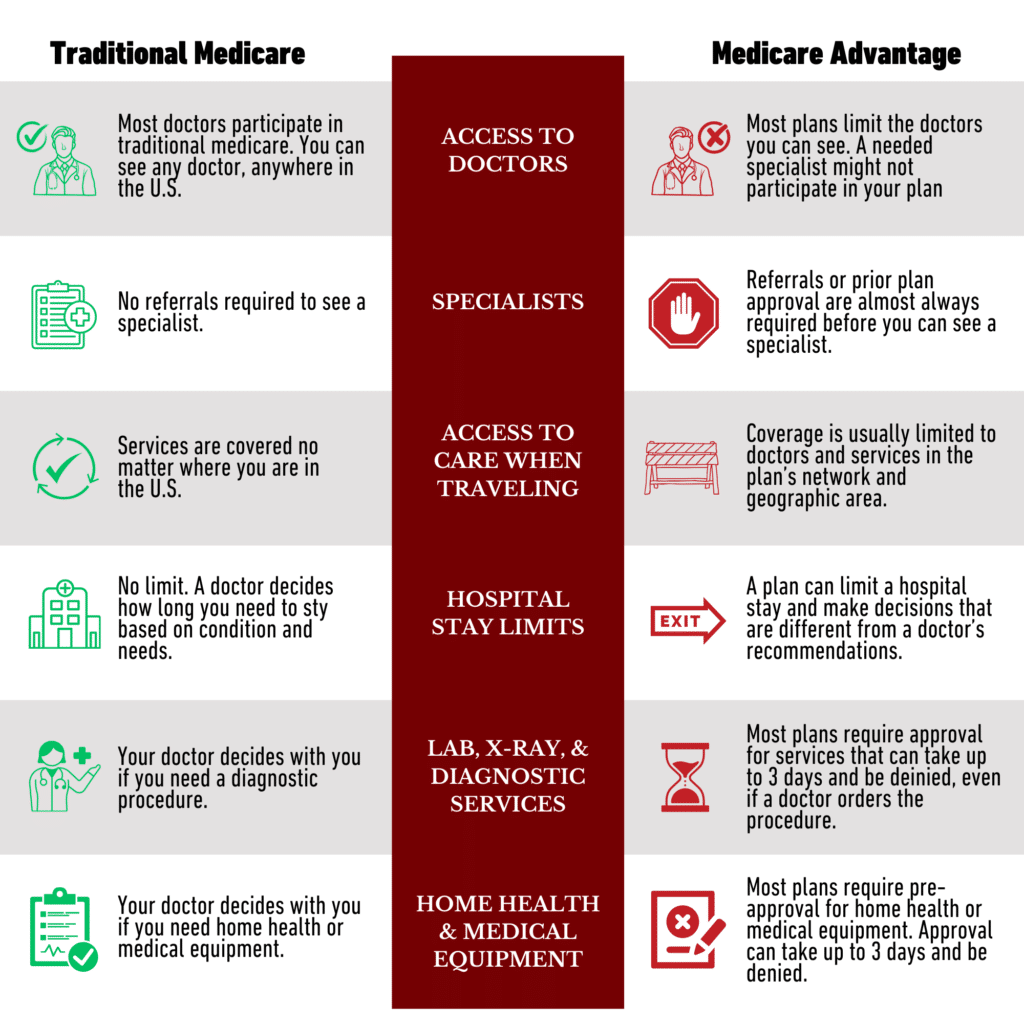Medicare Advantage is NOT the same as Traditional Medicare. There are key differences that can have a real impact on how, when, and where you get the medical care you might need.
The choice between the two depends on personal healthcare needs, preferences for flexibility, and cost considerations. The table below compares Traditional Medicare and Medicare Advantage in an easy-to-read format.

Click HERE for a downloadable and printable version of the above table.
Traditional Medicare
Traditional Medicare includes Part A (hospital insurance) and Part B (medical insurance), providing coverage for inpatient and outpatient care. Beneficiaries can visit ANY healthcare provider that accepts Medicare, and there is no need for referrals. Traditional Medicare often requires purchasing a separate Part D plan for prescription drugs and secondary/supplemental insurance to cover out-of-pocket costs like copayments and deductibles.
Medicare Advantage Plans
Medicare Advantage Plans, offered by private insurance companies approved by Medicare, bundle Parts A, B, and often Part D (prescription drugs) into one plan. These plans may offer additional benefits, such as vision, dental, and hearing coverage, but often have a network of doctors and healthcare entities, and may require referrals for specialists. Medicare Advantage plans often have lower upfront costs but can have higher out-of-pocket expenses for some services.
Making the Right Medicare Choice: We're Here to Help
At Bunkie General, our healthcare professionals are ready to guide you through the process of selecting the Medicare plan that’s best for you. Whether you’re considering Traditional Medicare or Medicare Advantage, we provide the support and information you need to make an informed decision about your healthcare coverage.
Contact a BGH Patient Benefit Representative today!
Contact
Patient Benefit Representative
- (318)305-0002
This article is for informational purposes only and is not intended for medical diagnosis or treatment. Always consult your healthcare provider with any questions or concerns about your health.

